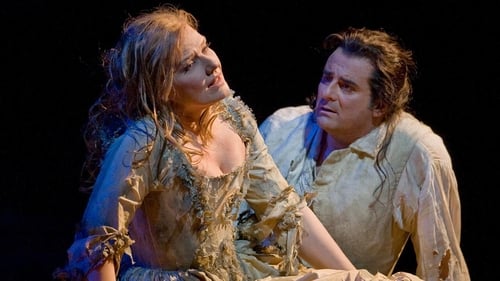
Loge
When a precious hoard of gold is stolen from the river Rhine, it unleashes a chain of destructive events, pitting gods and mortals against one another for generations. Wagner’s Ring cycle boasts some of the greatest music ever written for the opera stage. Join us as we embark on a spectacular journey into the world of myth, dream and memory, with the figure of Erda – Mother Earth herself – at its centre.

Leonard Woolf
Renée Fleming makes her highly anticipated return to the Met in the world-premiere production of Pulitzer Prize–winning composer Kevin Puts’s The Hours, adapted from Michael Cunningham’s acclaimed novel. Inspired by Virginia Woolf’s Mrs. Dalloway and made a household name by the Oscar-winning 2002 film version starring Meryl Streep, Julianne Moore, and Nicole Kidman, the powerful story follows three women from different eras who each grapple with their inner demons and their roles in society. The exciting premiere radiates with star power, with Kelli O’Hara and Joyce DiDonato joining Fleming as the opera’s trio of heroines. Phelim McDermott directs this compelling drama, with Met Music Director Yannick Nézet-Séguin on the podium to conduct Puts’s poignant and powerful score.

Edmondo
One of today’s most compelling singing actresses, Karita Mattila takes on the irresistible role of Manon Lescaut, the headstrong young woman torn between a life of luxury and the call of her true love: the Chevalier des Grieux, played by Marcello Giordani. The young Puccini lavished some of his most sensual music on this early hit, conducted here by the Met’s beloved James Levine.

Zaide, the unfinished opera by Mozart, in a production directed by Peter Sellars which was the focus of controversy at the Aix-en-Provence Festival in 2008. Composed in 1780, two years before The Abduction from the Seraglio, Zaide contains melodies of incredible inventiveness. The opera lacks an overture, a finale and many spoken dialogues, yet the missing elements allowed Sellars to elaborate and transform the work into a grand manifesto against slavery. Sellars' vision provoked a scandal, as it had previously in Vienna and London, but the Cour de l'Archevêché has experienced plenty of scandals.



